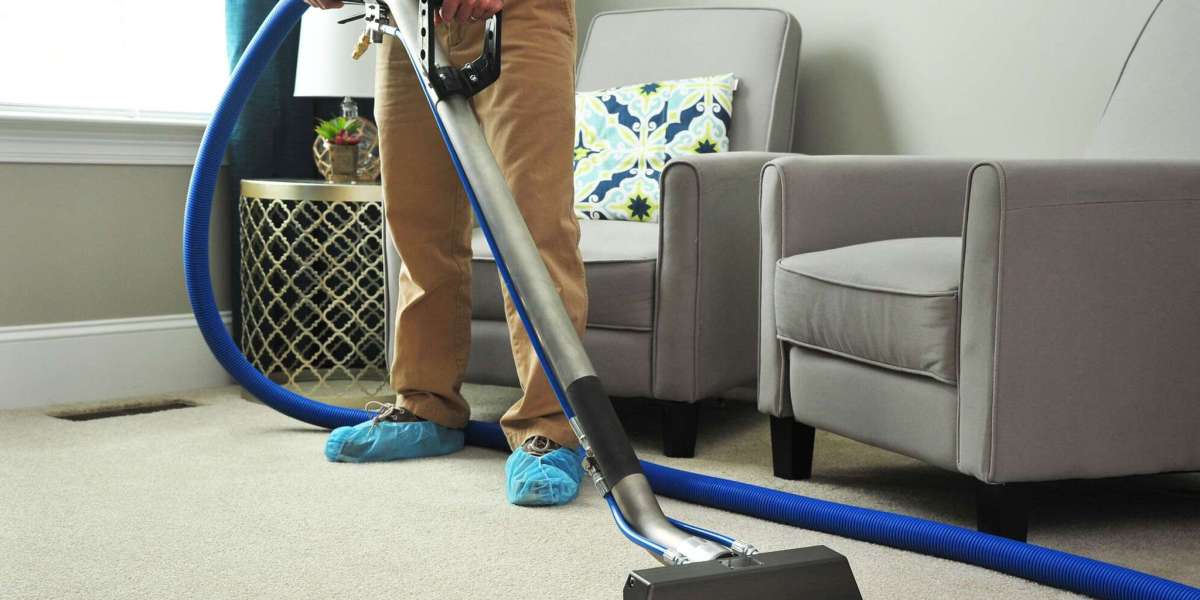Rent reduction is a provision that might be included in a commercial or house lease. It entitles the tenant to suspend lease payments or pay only a part of the lease till a property manager completes residential or commercial property repair work.

Let's take a more detailed take a look at rent abatement and what it indicates for industrial and home tenants.

WHAT DOES IT MEAN TO HAVE RENT ABATEMENT?
Rent reduction generally is outlined in the regards to an industrial or domestic property lease. It might include stipulations that specify whether a landlord will reduce a tenant's rental expenses or get rid of these expenses momentarily if a residential or commercial property becomes uninhabitable.
With lease reduction, a tenant is protected if a residential or commercial property is harmed due to fire or flooding. Also, lease abatement safeguards a tenant against natural catastrophes such as earthquakes, typhoons and tornadoes, together with required residential or commercial property evacuations by a city or county federal government.
In a commercial residential or commercial property lease, a property manager's service liability insurance often covers rent reduction. Thus, the costs related to residential or commercial property damage would be paid by the insurance company, as long as the property owner pays the insurance coverage's deductible. It is very important to note a tenant would need occupant's insurance or business liability insurance to cover the expenses of damaged residential or commercial property in this situation. The tenant also might require organization interruption insurance to cover the expenses connected with financial losses that a company could suffer while a residential or commercial property is repaired.
PROVIDING GUIDELINES FOR LANDLORD AND TENANT
Rent abatement in location as part of an industrial lease keeps the landlord-tenant pact in place until a residential or commercial property can be utilized when again. It provides clear guidelines about which costs a property manager will cover - and which they will not. For full protection of all residential or commercial property and possessions, an occupant will require to acquire a combination of:

- Renter's insurance coverage
- Business liability insurance coverage
- Business interruption insurance coverage
In a property lease, a renter is entitled to a habitable residential or commercial property. If a landlord stops working to perform repairs and preserve safe, healthy living conditions, a renter might be able to deduct the expenses of repair work from the lease.
A tenant's capability to abate is based upon the residential or commercial property's condition and may be consisted of in the regards to a rental arrangement. Furthermore, rent reduction is enforceable in every state.

HOW LONG DOES RENT ABATEMENT LAST?
There is no set quantity of time a lease reduction period might last. In many circumstances, a rent reduction period might extend for weeks or months, depending upon the residential or commercial property's condition and the time it takes to complete repair work. As such, the cash a domestic home occupant conserves throughout a rent abatement duration might require to be applied to short-lived housing costs, such as costs associated with living in a hotel or a short-term rental residential or commercial property.
In addition, the amount of rent decrease throughout abatement might vary. Sometimes, a.
property owner may decrease an occupant's rent by a particular percentage. For example, if half of a house is no longer inhabitable due to malfunctioning plumbing, a property owner might decrease the rent by half.
A landlord likewise might determine the eased off rent of a residential or commercial property to determine the reduced value of the lease. For example, if a rental residential or commercial property's fair market rent is $2,000 but the living area's diminished condition reduces its worth to $1,000, the occupant may receive half off the lease.
CAN RENT ABATEMENT HURT ME?
Rent abatement is created to assist property and commercial tenants, not injure them. Therefore, rent abatement frequently assists occupants acquire extra help if a residential or commercial property is damaged and ends up being uninhabitable.
On the other hand, rent reduction alone can only do so much, and tenants will need extra defense to cover the expenses associated with possible damage to their belongings.
To much better understand this point, let's think about an example. If a fire damages a tenant's residential or commercial property, they might receive a part of the costs related to damages as part of lease abatement. Conversely, a renter's home computer, precious jewelry and other personal belongings will not be covered by rent reduction. In fact, a tenant might be forced to pay the costs to change these products out of their own pocket.
Luckily, many insurance coverage options are offered to protect both industrial and domestic tenants and their personal belongings. A few of the most typical insurance options consist of:
Renter's Insurance
Renter's insurance covers individual residential or commercial property losses. It frequently functions as a viable insurance option for domestic and commercial occupants, enabling them to protect their personal residential or commercial property while they are at home or while they take a trip.
Ultimately, tenant's insurance protects a renter against residential or commercial property losses triggered by:
- Aircraft or vehicle damage.
- Fire or lightning.
- Explosion.
- Ice, snow and sleet.
- Windstorm or hail.
- Theft.
- Vandalism.
Renter's insurance will protect a renter in the occasion that they are unable to reside in a home briefly. As a result, it may act as a viable substitute if rent abatement is not included as part of a lease contract.
Tenants probably won't need to stress over breaking their budget plans to purchase occupant's insurance coverage, either. A current Nationwide study suggested 56 percent of young adult renters lack occupant's insurance. The survey also revealed tenant's insurance coverage costs about the very same amount as a pair of film tickets each month.
Business Liability Insurance
Business liability insurance coverage works as an umbrella policy that offers coverage in a variety of areas, including residential or commercial property damage. With business liability insurance, an occupant is safeguarded in the occasion damage strikes a physical location they lease for company functions.
A company liability insurance coverage generally uses protection against losses triggered by:
- Aircraft or vehicle damage.
- Explosions.
- Fire or lightning.
- Smoke.
- Windstorm and hail
Tenants can add organization liability protection for water damage, falling things and other prospective risks too.
Purchasing business liability insurance coverage might show to be perfect for business tenants. It enables tenants to secure themselves versus losses if a commercial residential or commercial property is harmed or ruined. Plus, company liability insurance coverage safeguards a renter against the loss of any personal residential or commercial property that has value, such as computer systems and TVs.
Business Interruption Insurance
Business disturbance insurance is important for business renters due to the fact that it delivers financial protection if a company is required to close temporarily due to residential or commercial property damage or damage.
With business interruption insurance coverage, an industrial tenant is secured against lost compensation if they are required to leave a building. The insurance covers the income that a tenant would have made based on their financial records. It likewise covers the costs connected with operating costs like electrical power that may continue even if company activities are forced to stop briefly.
When it concerns organization disruption insurance, a renter should set adequate policy limitations. If a tenant purchases only enough protection to manage the expenses for a few days after a service is disrupted by a catastrophe, they might run out of funds before the company can go back to its everyday operations.
The costs of service disturbance insurance may differ, and Trusted Choice keeps in mind that organization disruption insurance expenses can range from $750 to $10,000. These costs will depend on the size of a service, its area and the dangers it faces day after day.
HOW TO RECEIVE RENT ABATEMENT
Rent abatement should be a significant consideration during lease negotiations. At this point, a prospective tenant has utilize they might be able to utilize to negotiate beneficial rent abatement terms.
There is no set formula for a rent abatement amount, but the total typically is based on the terms of a lease contract:
- In some instances, rent reduction may be extended based on the length of a lease. If a landlord uses an one-year lease, a renter may get approved for lease abatement for one month.
- Or, if a proprietor offers a five-year lease, a renter may receive lease abatement for five months.
- Remember that no two lease arrangements are similar, however, and rent abatement ought to be gone over between a property manager and tenant to make sure that rent abatement terms please the requirements of all celebrations.
When going over rent abatement, it is vital to consider the proprietor's position. A landlord is responsible for looking after an area and finding renters who will keep the area and pay the lease on schedule. They might carry out comprehensive research to discover the best renters and perform background checks that could become lengthy and expensive. Despite a property manager's finest efforts, there are no warranties they will have the ability to find appropriate renters rapidly.
Proposing rent reduction terms throughout lease settlements might assist an occupant set the phase for a mutually useful partnership with a proprietor. Rent reduction serves the requirements of both parties, making it possible for an occupant and landlord to get the finest outcomes possible if residential or commercial property damage occurs.
BENEFITS OF RENT ABATEMENT FOR BOTH SIDES
By offering lease abatement to tenants, a property manager may stand apart to prospective tenants. Providing rent reduction as part of a rental arrangement might make it much easier for a proprietor to secure contracts with the perfect renters, i.e. those who will follow the regards to a rental contract closely.
For occupants, lease reduction offers unparalleled protection, particularly if it is included in a rental contract. And with well-defined lease reduction terms in location, a renter may have the ability to avoid legal headaches down the line.
Unfortunately, if rent abatement is not consisted of in a rental arrangement, a tenant and landlord might require to go to court to solve a residential or commercial property damage conflict. In this situation, a tenant can ask for a quantity to ease off in little claims court or remarkable court. A tenant likewise may apply for retroactive rent abatement, which offers a refund for lease already paid while a rental residential or commercial property remained in subpar condition.
GOING TO COURT FOR RENT ABATEMENT
Some jurisdictions have procedures in place for renters who wish to take a rent abatement case to court. For instance, a tenant may be required to ask for an assessment by city officials if a property manager stops working to deal with a residential or commercial property damage problem. And if the landlord still does not adhere to the city's requirement to repair the residential or commercial property, a tenant then can bring the case to court.
A lease reduction hearing will be kept in front of a health and public safety committee. This group will hear both sides of the case and decide the result.
If an occupant believes that they are qualified for lease abatement for residential or commercial property damages, all of these damages need to be tracked appropriately. A renter will need to notify their proprietor about residential or commercial property damage in composing as part of a rent reduction letter. The letter needs to be clear and direct and provide a list of residential or commercial property damage that specifies what earns a living space uninhabitable.

After a lease abatement letter is sent, an occupant should follow up with their property manager directly. Doing so might allow an occupant to discuss why they feel entitled to reduced lease. It might even enable a tenant and property owner to concur to terms before a rent abatement case is given court.
HOW TO NEGOTIATE RENT ABATEMENT
A tenant should think about numerous elements to negotiate rent abatement terms effectively.
In a seller's property market, a limited quantity of premium residential or commercial properties may be readily available. Comparatively, in a purchaser's market, potential tenants may have many great alternatives at their disposal. Examining the genuine estate market closely may enable a renter to distinguish a seller's market from a buyer's market. In many cases, an occupant may be better geared up to work out beneficial lease reduction terms in a seller's market than a buyer's. Here are a few ways to do it:
PROVIDING IMPROVEMENTS FOR RENT ABATEMENT
Generally, a property manager may be more inclined to provide rent reduction if an occupant consents to finish residential or commercial property improvements by themselves. Residential or commercial property enhancements might be pricey and time-intensive, however an occupant who concurs to complete these jobs could abate their lease throughout this timeframe.
By completing the residential or commercial property enhancements, the tenant will improve the residential or commercial property's value. Meanwhile, the renter will not need to fret about all or a portion of lease throughout that time, as they will be covered by rent abatement terms in the lease arrangement.
THE RENT ABATEMENT DOWN ECONOMY ARGUMENT
An occupant might have the ability to work out rent reduction based upon a "down economy." This might serve as a partial rent abatement due to hard financial scenarios. Rent reduction due to a down economy may offer a valuable alternative for organization operators.
If a business tenant is able to postpone a lease payment for a number of months, they might have the ability to reinvest the short-term cost savings into business. And when the postponed rent payment becomes due, the occupant might be much better geared up to offer this payment and higher payments in the future.
RENT ABATEMENT VS. THE ALTERNATIVES
Lastly, business property managers may prefer rent reduction terms over options. These landlords often deal with high fixed structure expenses and low-variable structure expenditures, and might not cover the expenses connected with utilities and janitorial services.
But if corporate landlords offer lease abatement, they might have the ability to help their residential or commercial properties stand apart to potential renters. And over a prolonged time period, a corporate proprietor's decision to use rent abatement to occupants might make it easy to produce substantial interest from business tenants.
FIND OUT ABOUT RENT ABATEMENT AND FAR MORE FROM 33 REAL ESTATE
Landlords and renters alike might struggle to comprehend the ins and outs of rent reduction. Fortunately, 33 Real estate serves as a fully incorporated property business that delivers a one-stop shop experience. We provide lots of high-quality services to guarantee proprietors and occupants can discover lease reduction and other property subjects.








